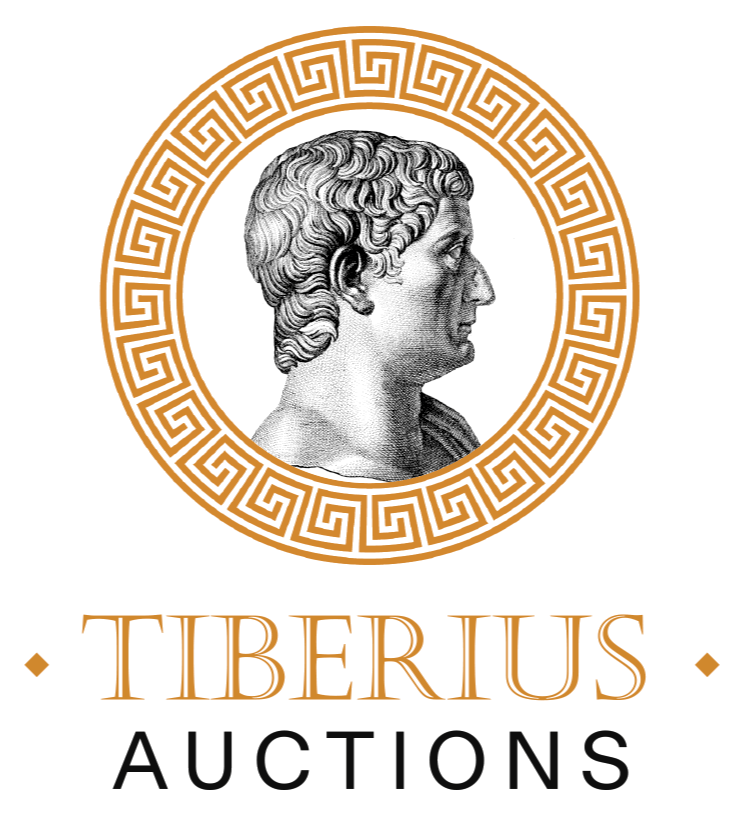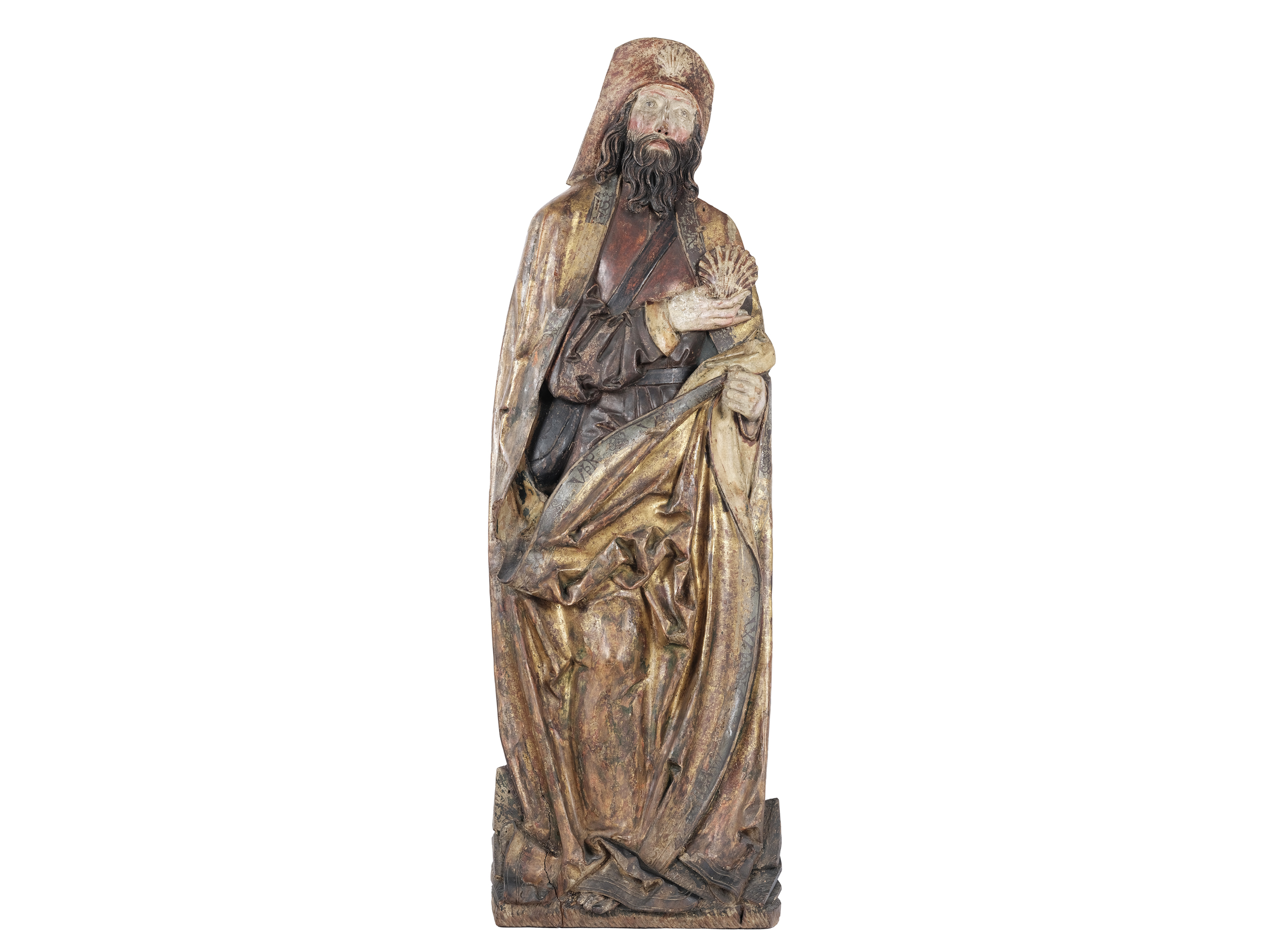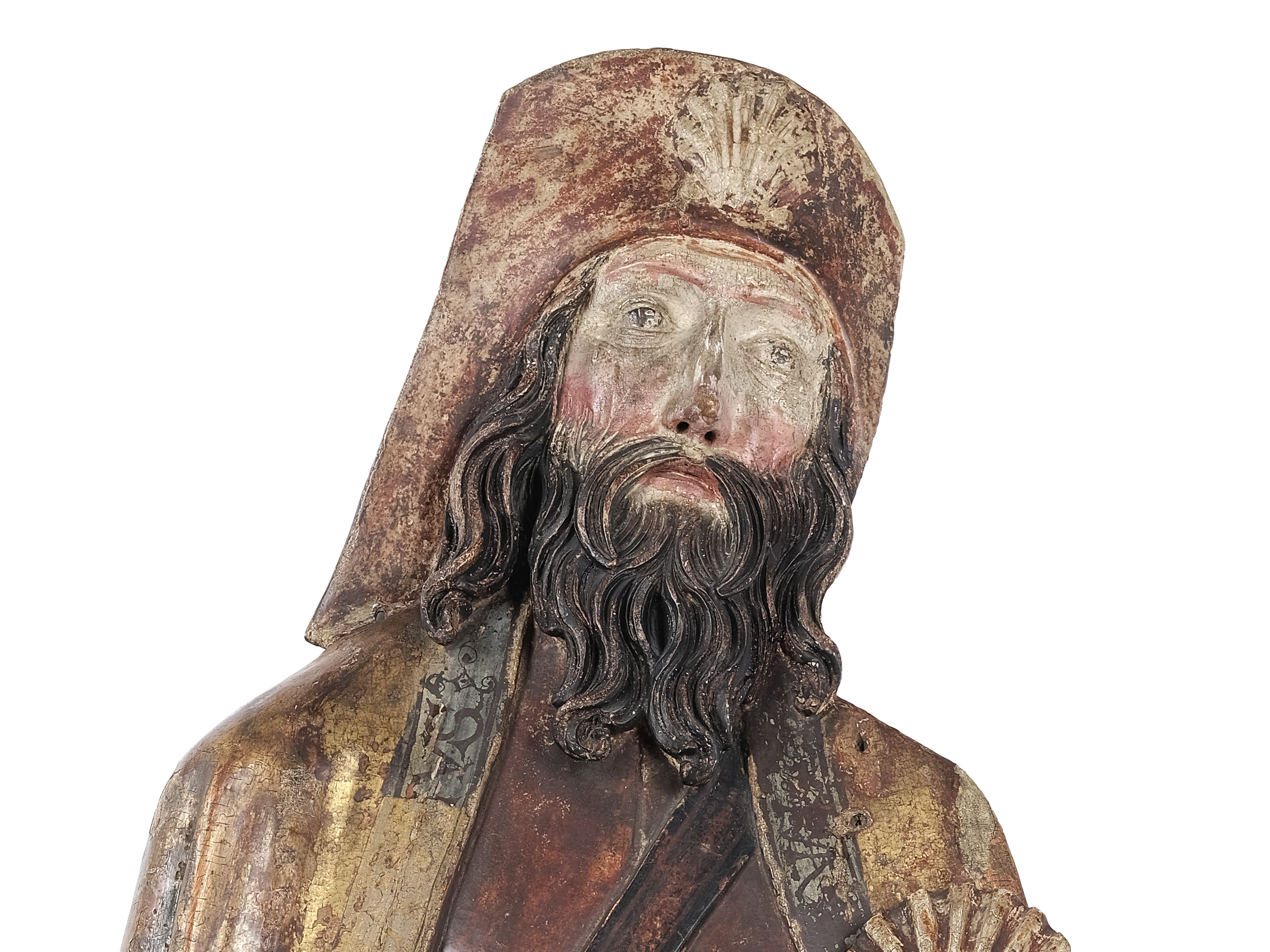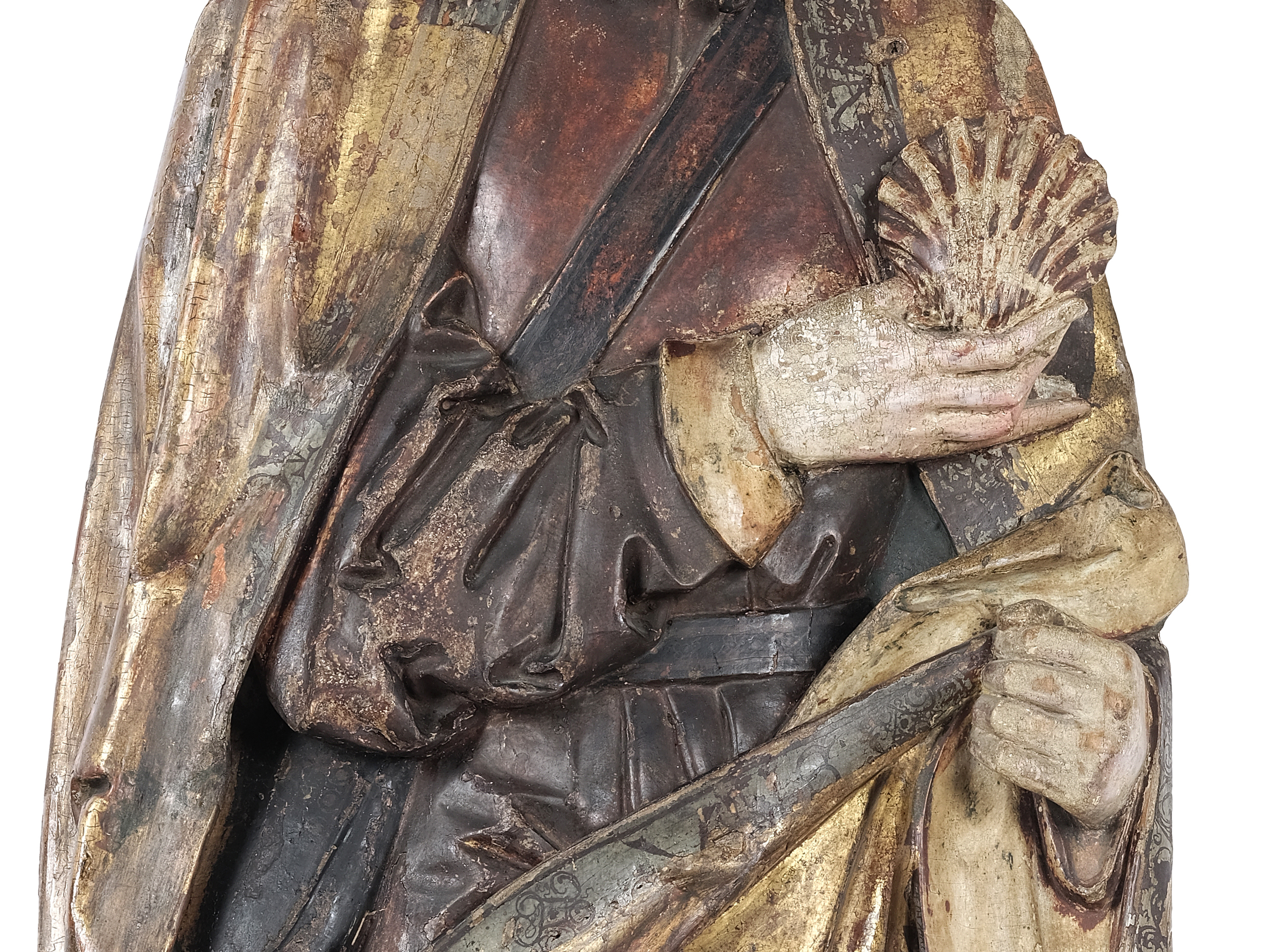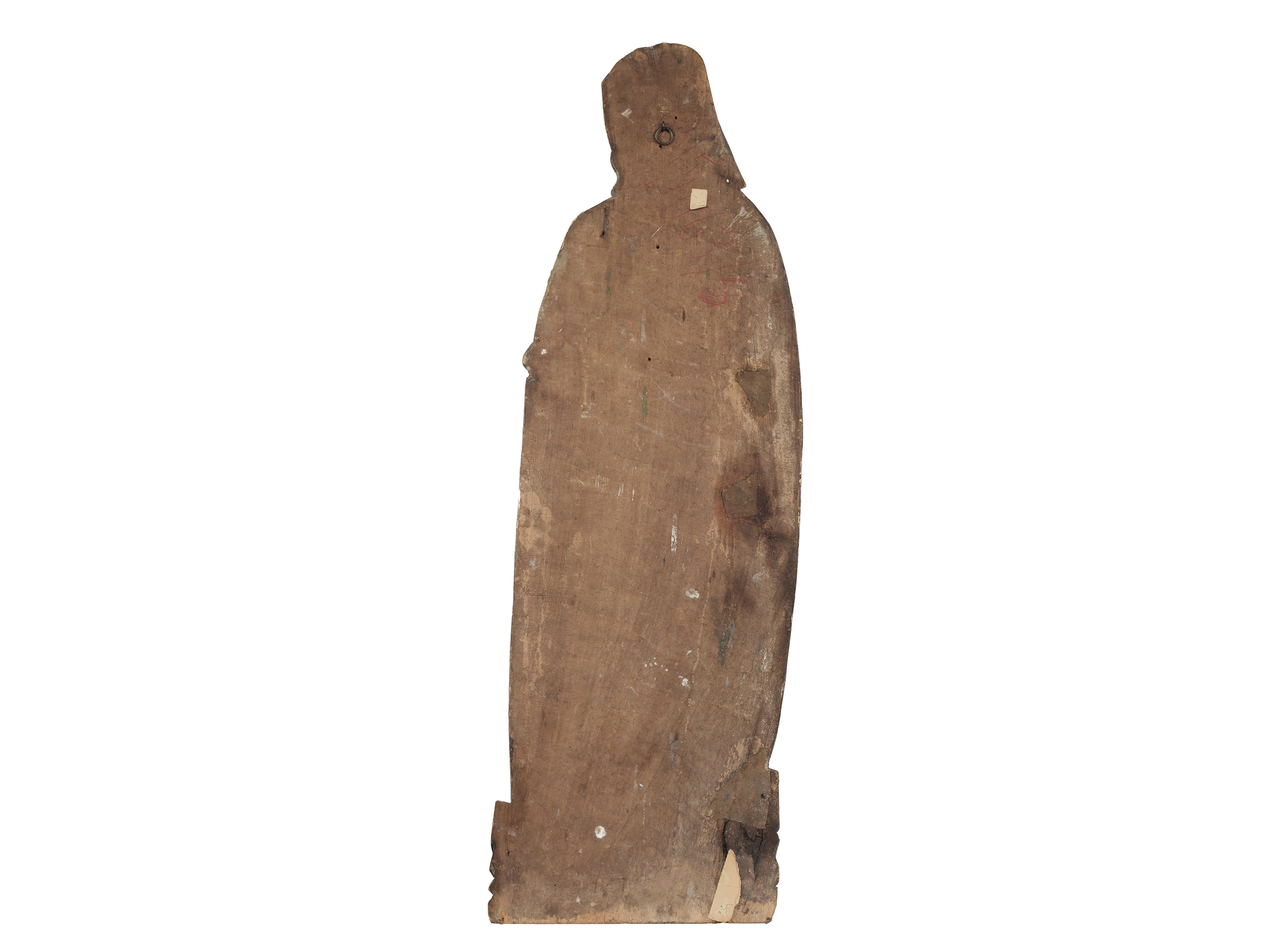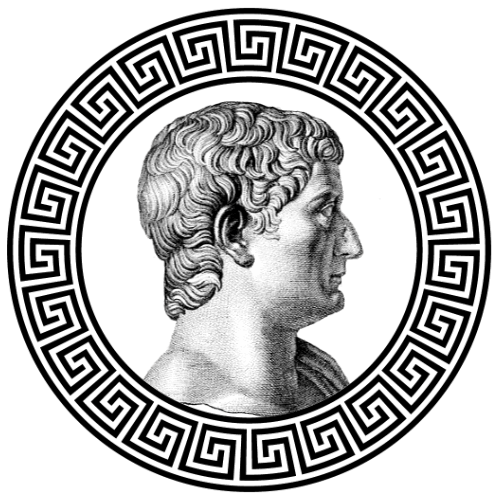Late Gothic relief
17th Tiberius Auction
Late Gothic relief
Starting price:
€ 2.200
- USD: 2.583 $
- GBP: 1.897 £
Estimated price: € 3.000 / 6.000
Late Gothic relief
St. James
Swabian / Tyrol
Around 1510/20
Carved wood
Original polychrome paint
Largely preserved
Height 102 cm, width 32 cm
St. James, one of the twelve apostles and especially venerated as James the Elder, is considered the patron saint of pilgrims. Through the tradition of his miraculous apparitions and the legend of his mystical journey to Santiago de Compostela, his iconography developed into a symbol of faith and pilgrimage, making him an important figure of Christian piety.
In this bas-relief work, St. James appears standing, in the typical depiction of a pilgrim. He wears a traveler’s hat on his head, on which the scallop shell is artfully emblazoned – an unmistakable sign of his identity. He is also holding it in his right hand. The scallop shell was used by pilgrims in the Middle Ages as a sign of recognition and a symbol of the journey. It was worn as a sign of a completed pilgrimage and symbolized protection, purification and the spiritual journey of the believer.
With his left hand, James gathers his long, shimmering golden robe, which is artfully decorated with borders at the edges, emphasizing the splendour and dignity of the saint. An additional pocket clearly identifies him as a pilgrim saint.
The carving impresses with its extraordinary delicacy. The detailed fold configurations of the fabric are particularly striking: numerous corner and crease folds are carved above the knee, lending the depicted garment a lively plasticity. A diagonal line of folds, a so-called depressed bowl fold, is also meticulously modeled – an element that lends the composition an additional dynamic and gives expression to the left hand holding it.
The relief captures the character of St. James as an eternal wanderer and symbol of faith. His image is not only a depiction of an apostle, but also a symbol of the spiritual journey and the tireless search for divine enlightenment. The artful combination of fine craftsmanship and symbolic iconography makes this work an impressive testimony to late Gothic carving and underlines the devout veneration accorded to St. James in the Christian tradition.
